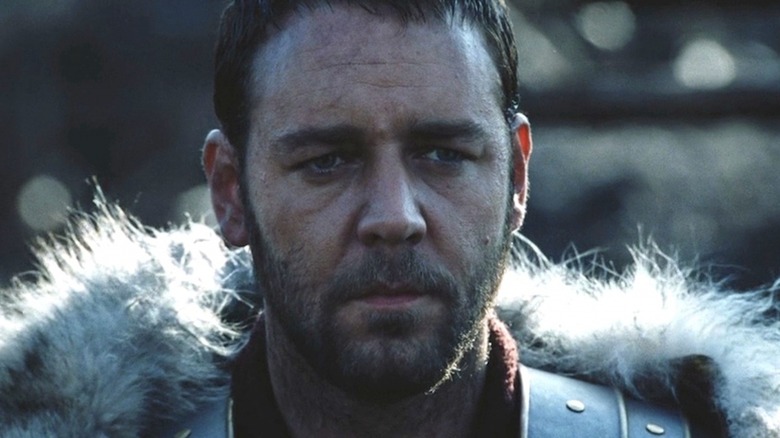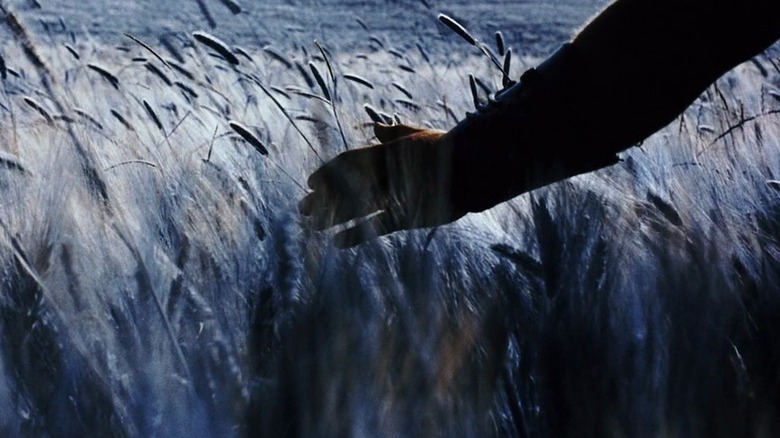Gladiator's Most Iconic Shot Was Unplanned - And It's Deeper Than You Think
Director Ridley Scott is the father of some of the most notable sci-fi and historical epics of our time. The fame he garnered following "Alien" and "Blade Runner" increased even further upon the release of the 2000 film, "Gladiator." Catapulting Russell Crowe and Joaquin Phoenix into household stardom, the chaotic production ultimately yielded one of the best films of the aughts. Issues like an unfinished script and the unexpected death of Oliver Reed made the film seem as though it was doomed. But against all odds, "Gladiator" grossed more than $500 million worldwide. It remains a classic, and one of the moments that left a lasting impression on audiences was a beautiful and unplanned sequence that strikes at the heart of what it is to be human.
Interspersed throughout the film are shots of Maximus' (Crowe) hand brushing through wheat stalks. Scott is known for decisive visuals and this could have just been an aesthetic choice. However, that wasn't the case. Maximus' death at the end of the film explores the concept of the afterlife; the wheat stalks were not just poetic shots for the sake of it, but a place where the lead character could be reunited with his dead family. This result was totally unexpected but did open many questions about Scott's stance on immortality.
In a profile for The New Yorker, Ridley Scott explored his filmography and the follow-up to "Gladiator" starring Paul Mescal. (For obvious reasons, Russell Crowe will not be reprising his role.) The director explained that the iconic shot from the first film came about after he saw Crowe's body double walking through field of wheat, and spontaneously decided to capture it on film.
Gladiator inspires deep thoughts
As he explained the shot, Scott's thoughts turned to the themes of the film. "Do I believe in immortality?" Scott wondered aloud. "I'm not sure." In the film, Maximus goes through harrowing trials that no one should have to go through, but in the end, he is rewarded. The gladiator makes it to the afterlife with his wife and child waiting for him, where he presumably lives forever. Even Scott, who is one of the most confident directors around, still mulls over the concept. Those around the filmmaker are more secure in their opinions. His son, Luke, posits that Scott always has a character proxy in every one of his films.
"In each movie, there is always a character who I think is Ridley," he'd said. "They tend to be quite peripheral, almost observers. It's the one with a darker humor, the one who is, perhaps, more divisive. The one who has the agenda." One example he gave was Guy Pearce's character, Peter Weyland, in "Prometheus" — a billionaire CEO searching for the one thing money can't buy: immortality.
Even if Scott isn't sure how he feels about immortality, his expansive list of well-regarded films means he will — at the very least — be remembered.

